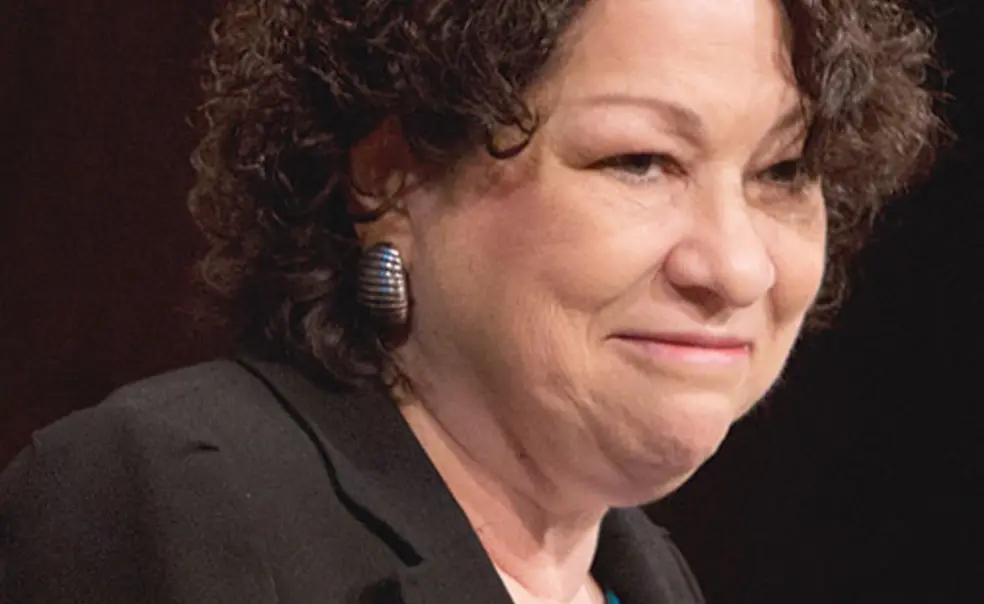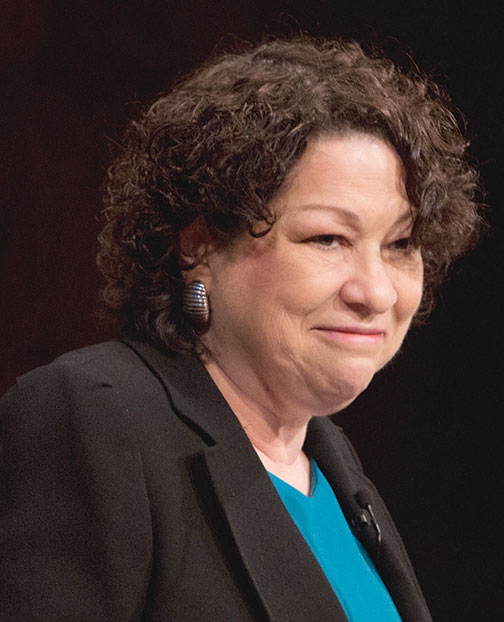Service From the Heart
Toward the beginning of her Alumni Day talk, Supreme Court Justice Sonia Sotomayor ’76 referred to the eloquent (and long) 1896 speech by Woodrow Wilson 1879, the basis for Princeton’s informal motto “Princeton in the nation’s service.” Wilson, she said, spoke in “towering and abstract” terms; indeed, he recalled the drama of nothing less than the American Revolution.
Sotomayor, winner of the Woodrow Wilson Award, felt that was a limiting view of service. Instead, she suggested, service is not just about taking major roles in the public sphere, but about our day-to-day actions and relationships: the networks we nurture at more intimate levels, such as family and community. The one role model of service she described was not a public figure but her mother, who sacrificed her interests to help neighbors and others in need. Princeton students and alumni are pushed daily to meet the highest scholastic and professional standards — but Sotomayor was saying something else: It’s not about winning the next gold star, she advised — it’s about managing to “squeeze out time from our overwhelming professional commitments to remember we need to serve people”: family, community, strangers, even those with whom we disagree.
As you will read, Alumni Day this year was — as always — filled with talk about extraordinary scholarship and professional accomplishments of the honorees, such as Sotomayor and Madison Medalist Hunter Rawlings III *70, president of the Association of American Universities. Yet Sotomayor’s more personal definition of service was evident at every turn. One Pyne Prize recipient spoke about teaching and learning from prison inmates whom he tutors; the other thanked Princeton most strongly for the “prize of community” she had received; a Jacobus recipient described the support of people who had helped him to succeed. The moving Service of Remembrance honored not only Princeton’s alumni and renowned faculty members, but staff members who worked in departments such as Dining Services and Buildings and Grounds. Long after graduating, some students remember the people who worked in these jobs on their behalf.
In that 1896 speech, Wilson may have painted a grand picture of what it meant to serve, but he also recalled that Princeton was founded “not to breed politicians,” but to train students for more direct and personal work: for the pulpit, and more generally, “for the grave duties of citizens and neighbors.” That was the sentiment that came through loud and clear on Alumni Day this year.













No responses yet